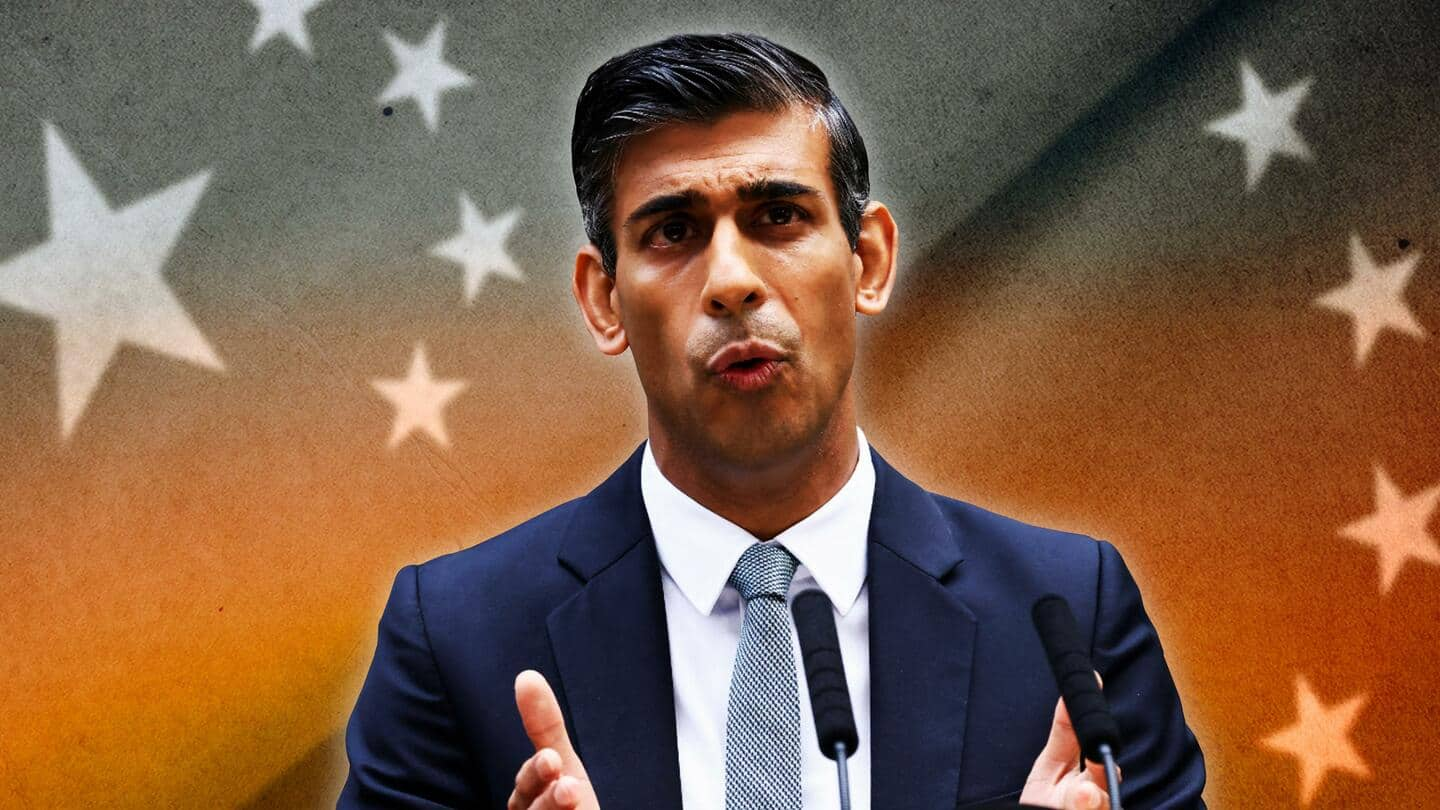
'Golden era' of UK-China ties over, says PM Rishi Sunak
What's the story
British Prime Minister Rishi Sunak on Monday said that China posed a "systemic challenge to the values and interests" of the United Kingdom (UK).
Speaking at the Lord Mayor's Banquet in London, Sunak said the "golden era" of UK-China relations—promoted by former PM David Cameron—was over, along with the "naive" idea that trade automatically leads to social and political reform.
Context
Why does this story matter?
Sunak's stern speech on foreign policy came as his government condemned China after the police in Shanghai thrashed and detained journalist Ed Lawrence of the BBC—Britain's state media—while he was covering an anti-lockdown protest. He was released later.
Amid an unprecedented number of COVID-19 cases, following a zero-COVID policy, China has imposed a lockdown, which the protesters are demanding to be called off.
Statement
Can't ignore China's significance in global affairs: Sunak
Sunak said Britain needs to evolve its approach to China and that the latter has moved toward "even greater authoritarianism."
He said China's significance in world affairs including issues, such as global financial stability and climate change, couldn't be ignored.
He further said that the US, Canada, Australia, Japan, and many other countries also understood the contention and will together "manage this sharpening competition."
Twitter Post
Must not rely on simplistic Cold War era rhetoric: Sunak
UK PM @RishiSunak on UK-China relations: "The so-called 'golden era' is over, along with a naive idea that trade would automatically lead to social and political reform. [...] We recognize China poses a systemic challenge to our values and interests." pic.twitter.com/T1IE3BvHYD
— The Hill (@thehill) November 28, 2022
Details
Sunak had called China 'number 1 threat' during campaign
He said his government will prioritize trade and security relations in the Indo-Pacific region.
During his campaign before assuming the prime ministership, he called China the "number one threat" to domestic and global security.
British Security Minister Tom Tugendhat called the attack on Lawrence "an echo of the CCP's (Chinese Communist Party) repression."
While British Foreign Secretary James Cleverly termed the incident "deeply disturbing."
Hong Kong
Call out abuses in Xinjiang, Hong Kong: Sunak
Sunak said the media must be free to "call out abuses in Xinjiang and the curtailment of freedom in Hong Kong," without sanctions.
Hong Kong is China's special administrative region until 2047.
Interestingly, it was earlier a colony of the British Empire and later became its dependent territory.
It was transferred to China in 1997 under the Sino-British Joint Declaration in 1984.
Twitter Post
Lawrence was detained and released later with no apology
A statement from the BBC on what happened to me in Shanghai last night while doing my job.
— Edward Lawrence (@EP_Lawrence) November 28, 2022
I understand at least one local national was arrested after trying to stop the police from beating me.
Thanks very much for the kind words and messages of concern. https://t.co/weoDAMakvO